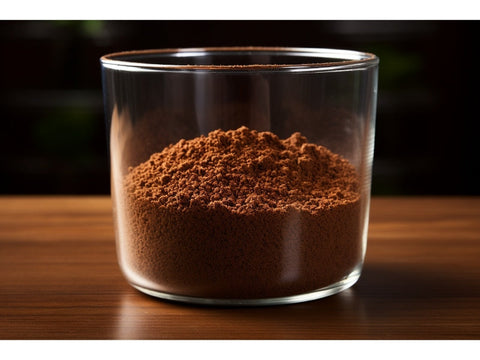Java coffee, also known as Javanese coffee, is a type of coffee that is grown and produced in the island of Java, Indonesia. It is one of the world's oldest and most famous types of coffee, known for its unique flavor profile and health benefits.
Java coffee has a rich history and a distinct process that sets it apart from other types of coffee. The island of Java is located in Indonesia, a country known for its production of high-quality coffee. The climate and volcanic soil in Java provide the perfect conditions for growing coffee beans, resulting in a rich and distinctive flavor.
What sets Java coffee apart from others is its aging process. Unlike other types of coffee, Java coffee is stored for several years before being roasted, giving it a milder and more complex flavor profile.
There are various types of Java coffee, including Java Arabica and Java Robusta, each with its own unique characteristics. The flavor profiles of Java coffee can range from chocolatey and nutty to earthy and spicy, depending on the type and processing method.
The coffee beans are first harvested and then washed and dried before being stored in warehouses for aging. This aging process allows the beans to develop a more mellow and smooth flavor.
Aside from its distinct flavor, Java coffee also offers numerous health benefits. Some potential benefits include its high antioxidant content, potential improvement in cognitive function, lower risk of type 2 diabetes, and potential protection against liver disease.
However, like any other caffeine-containing beverage, there are potential risks associated with consuming Java coffee, such as insomnia, increased anxiety, and aggravation of gastrointestinal issues.
To properly brew Java coffee, it is important to use high-quality beans, grind them correctly, and use the right water temperature. It is also recommended to experiment with different brewing methods to find the perfect cup for your taste. Whether you prefer a French press or pour-over, Java coffee is sure to provide a unique and satisfying experience.
Key Takeaways:
What Is Java Coffee?
Java coffee is a type of coffee that is produced on the Indonesian island of Java. It is highly sought after by coffee enthusiasts for its rich, full-bodied flavor and mild acidity. The unique taste of Java coffee is attributed to the volcanic soil and tropical climate of the island. With a deep history and distinct taste, Java coffee has become a staple in the world of specialty coffee.
Where Is Java Coffee Grown?
Java coffee is primarily grown in the volcanic islands of Indonesia, particularly in the regions of East Java and Central Java. The tropical climate, high altitude, and rich volcanic soil create ideal conditions for cultivating the renowned Java coffee beans. So, to answer the question "Where is Java coffee grown?", it is mainly grown in the volcanic islands of Indonesia, specifically in East Java and Central Java regions.
Read: Island Brews An Insiders Guide to Indonesian Coffee
What Makes Java Coffee Unique?

Java coffee stands out for its rich, full-bodied flavor, low acidity, and earthy undertones, all thanks to the unique combination of volcanic soil and ideal climate in the region. The beans are also typically wet-processed, which enhances their clean and vibrant taste.
To truly experience the distinct characteristics of Java coffee, consider trying a medium roast. For an even more elevated tasting experience, pair it with a buttery croissant or a chocolate-based dessert.
What Are The Different Types Of Java Coffee?
| 1. Arabica | Known for its smooth and mild flavor, grown at higher altitudes. |
| 2. Robusta | Has a stronger, harsher taste and higher caffeine content, typically grown at lower altitudes. |
| 3. Liberica | Characterized by a unique fruity and floral flavor, grown in specific regions. |
When it comes to the different types of Java coffee, options include:
- Arabica, known for its smooth and mild flavor, typically grown at higher altitudes.
- Robusta, with a stronger, harsher taste and higher caffeine content, commonly grown at lower altitudes.
- Liberica, characterized by a unique fruity and floral flavor, grown in specific regions.
What Are The Flavor Profiles Of Java Coffee?
Java coffee offers a diverse range of flavor profiles, including earthy, nutty, chocolatey, and even floral notes. Depending on the specific variety and growing conditions, Java coffee can exhibit a medium to full body with moderate acidity, and a smooth, clean finish. Some types may boast a subtle sweetness or hints of spices, providing a rich and complex flavor experience for coffee enthusiasts who are curious about the flavor profiles of this type of coffee.
How Is Java Coffee Processed?
- Harvesting: Ripe coffee cherries are picked by hand.
- Processing: The outer skin is removed, and the beans are left to ferment.
- Drying: Beans are spread out to dry in the sun.
- Hulling: The dried beans have their parchment skin removed.
- Grading: Beans are sorted based on size and weight.
Java coffee, which has been cultivated since the 17th century, was one of the first commercial coffee crops in the world. It gained a reputation for its high quality due to its unique processing methods and rich flavor.
What Are The Health Benefits Of Java Coffee?

As coffee lovers, we are always on the lookout for new and interesting brews to try. In this section, we will dive into the health benefits of java coffee, a unique and flavorful variety of coffee. From its high antioxidant content to potential benefits for cognitive function and chronic disease prevention, java coffee has a lot to offer. So let's explore the various ways that this delicious beverage may benefit our health.
1. Rich In Antioxidants
- Use high-quality java coffee beans, renowned for being rich in antioxidants.
- Grind the beans correctly to preserve their antioxidant properties.
- Ensure the water temperature is optimal to retain the antioxidants during brewing.
- Experiment with different brewing methods to find the best way to extract and preserve antioxidants.
2. May Improve Cognitive Function
Consuming Java coffee may have a positive impact on cognitive function thanks to its caffeine content. Caffeine acts as a stimulant, enhancing various brain functions, such as mood, energy levels, reaction time, and memory. However, it is important to note that excessive consumption can lead to negative effects such as jitteriness and disrupted sleep patterns.
To achieve optimal results, it is recommended to limit intake to moderate levels, usually around 3-4 cups per day. It is also important to balance consumption with proper hydration and to incorporate it into a healthy lifestyle that includes a balanced diet and regular exercise.
3. May Lower Risk Of Type 2 Diabetes
Lowering the risk of type 2 diabetes through consuming Java coffee can be achieved by following these steps:
- Choose high-quality, freshly roasted Java coffee beans to ensure maximum health benefits.
- Grind the beans correctly to maintain their natural compounds that may contribute to reducing the risk of type 2 diabetes.
- Use the right water temperature when brewing Java coffee, as it can impact the extraction of beneficial elements.
- Experiment with different brewing methods to find the most suitable approach for maximizing the potential to lower the risk of type 2 diabetes.
For a balanced lifestyle, complement coffee consumption with a nutritious diet and regular physical activity.
4. May Protect Against Liver Disease
Consuming Java coffee may have protective effects against liver disease, thanks to its high antioxidant content. The presence of antioxidants, specifically chlorogenic acid, in coffee may help reduce inflammation and decrease the risk of liver damage. However, it is important to consume coffee in moderation as excessive intake can have adverse effects. Maintaining a balanced lifestyle and limiting coffee consumption can contribute to overall well-being and help mitigate potential risks.
What Are The Potential Risks Of Consuming Java Coffee?

While java coffee is beloved by many for its rich flavor and energizing effects, it is important to also consider the potential risks of consuming this popular beverage. In this section, we will discuss three potential risks that may come with drinking java coffee: insomnia, increased anxiety and restlessness, and aggravation of gastrointestinal issues. By being aware of these potential risks, you can make informed decisions about your java coffee consumption.
1. May Cause Insomnia
- Avoid consuming Java coffee in the evening or close to bedtime as it may cause insomnia.
- Limit the amount of Java coffee consumed throughout the day to prevent potential insomnia.
- Consider switching to decaffeinated Java coffee if sensitivity to caffeine is experienced and may cause insomnia.
2. May Increase Anxiety And Restlessness
Consuming Java coffee may potentially lead to an increase in anxiety and restlessness, especially in individuals who are sensitive to caffeine. It is important to monitor your personal tolerance and consider switching to decaffeinated options if you experience any adverse effects.
3. May Aggravate Gastrointestinal Issues
- To mitigate the potential risk of aggravating gastrointestinal issues, avoid consuming coffee on an empty stomach.
- Gentler on the stomach, consider opting for low-acid coffee variants.
- To alleviate the possibility of exacerbating gastrointestinal discomfort, limit the consumption of coffee.
Pro-tip: To further minimize the likelihood of aggravating gastrointestinal issues, try adding a dash of cinnamon to your coffee. This may help reduce its acidic impact on the stomach.
How To Properly Brew Java Coffee?
Wondering how to make the perfect cup of Java coffee? Look no further! In this section, we will discuss the essential steps to properly brew Java coffee. From selecting high-quality beans to experimenting with different brewing methods, we'll cover all the necessary techniques to achieve a delicious and satisfying cup of Java coffee. So grab your coffee beans and let's get brewing!1. Choose High-Quality Beans
- Inspect the beans for uniform size, color, and lack of defects.
- Opt for beans from reputable sources, like single-origin specialty coffee farms.
- Consider the roast date; fresher beans produce better flavors.
Did you know? Choosing high-quality beans is essential for a delicious and robust Java coffee experience.
2. Grind The Beans Correctly
- Invest in a burr grinder for consistent particle size.
- Adjust the grind size based on your brewing method.
- For French press, use a coarse grind; for espresso, use a fine grind.
Consistent grind size is crucial for extracting the best flavors from Java coffee beans.
Read: Adjusting Coffee Grind Size
3. Use The Right Water Temperature
- Fill the kettle with fresh, cold water.
- Heat the water to a temperature between 195°F and 205°F (90°C and 96°C).
- For pour-over or drip coffee, aim for a temperature of around 200°F (93°C).
- Once the water reaches the appropriate temperature, it is ready to brew your Java coffee.
4. Experiment With Different Brewing Methods
- French Press: Coarse grind the beans, add hot water, steep for 4 minutes, then press the grounds.
- Aeropress: Use a fine grind, pour hot water, stir for 10 seconds, and press the coffee through a filter.
- Chemex: Place a Chemex filter, add medium-coarse grind coffee, pour hot water, and remove the filter after brewing.
- Cold Brew: Steep coarse coffee grounds in cold water for 12-24 hours, then filter the grounds out.
Frequently Asked Questions
What is Java Jolt and what does it focus on?
Java Jolt is a newsletter by Sustainable Java that curates news stories and articles related to coffee and sustainability. It covers a wide range of topics in the coffee industry, but its main focus is on sustainability.
When was the second issue of Java Jolt released?
The second issue of Java Jolt was released on February 28, 2020.
What are some interesting news stories included in the latest issue of Java Jolt?
The latest issue of Java Jolt features news about a converted ski gondola being used to serve fresh coffee, the multiple uses of coffee cherries (cascara fruit), and an astrophysicist utilizing his expertise for better brewing. It also highlights the growing popularity of oat milk and promotes Mug-A-Palooza, an online festival featuring different types and sizes of drink-ware.
How is the coffee industry working towards waste reduction?
The coffee industry is actively searching for alternatives to disposable paper cups in order to reduce waste. Companies like Starbucks and McDonald's are participating in design challenges to find reusable cup solutions. Fresh Cup Magazine also has an article discussing the latest developments in the use of cascara, the fruit that grows around the coffee bean and can be used in various ways to reduce waste.
What can supporters of Sustainable Java do to stay updated on their events and news?
Follow Sustainable Java on their social media outlets (Facebook, Instagram, and Pinterest) for updates on events like Mug-A-Palooza and other news stories related to coffee and sustainability.
Can you give an example of a unique coffee food truck featured in Java Jolt?
Fitzroy Coffee Company in Golden, Colorado has a one-of-a-kind coffee food truck - a ski gondola. This innovative truck allows customers to enjoy freshly brewed coffee in a unique setting.


